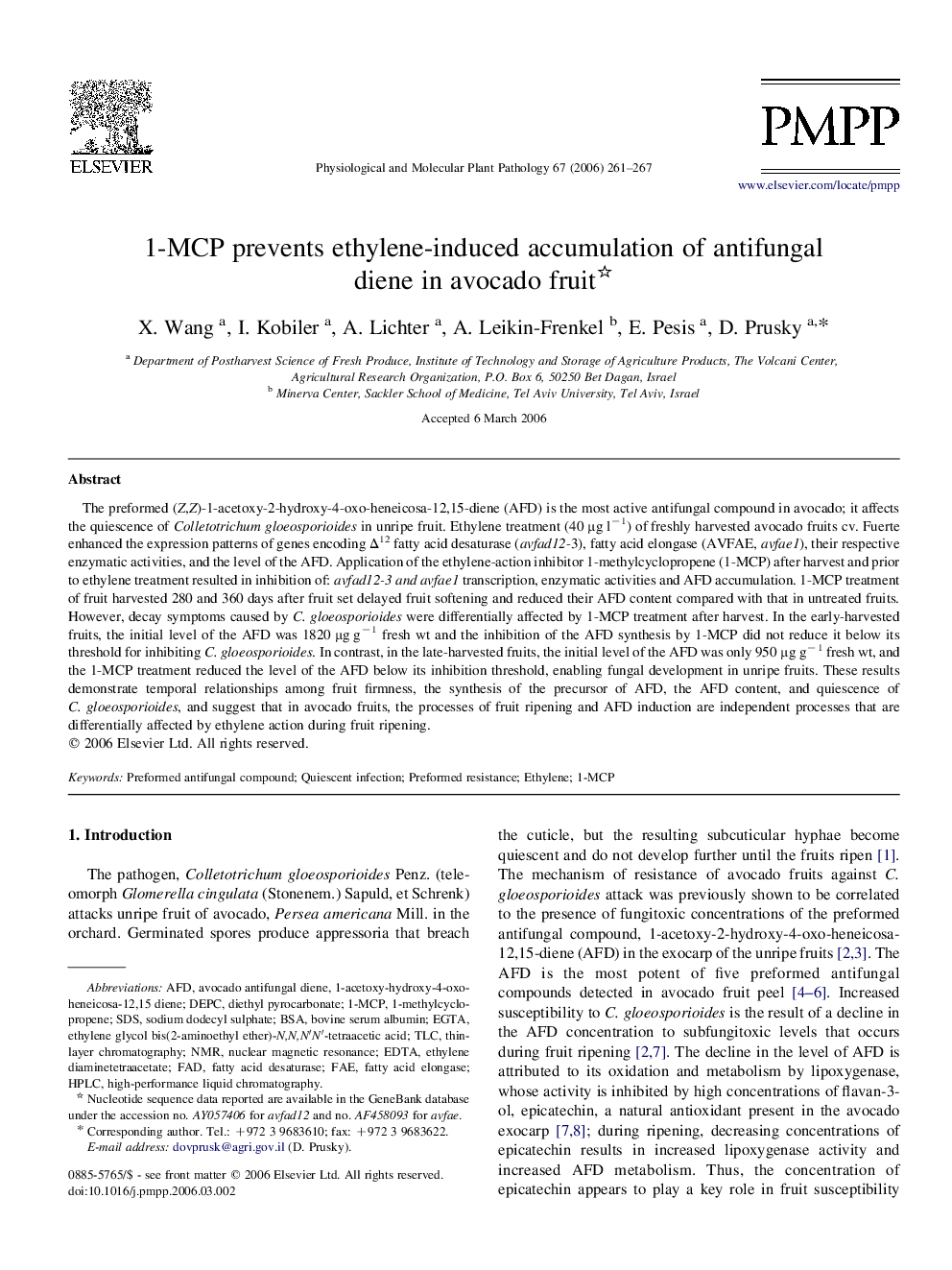| Article ID | Journal | Published Year | Pages | File Type |
|---|---|---|---|---|
| 2836849 | Physiological and Molecular Plant Pathology | 2006 | 7 Pages |
The preformed (Z,Z)-1-acetoxy-2-hydroxy-4-oxo-heneicosa-12,15-diene (AFD) is the most active antifungal compound in avocado; it affects the quiescence of Colletotrichum gloeosporioides in unripe fruit. Ethylene treatment (40 μg l−1) of freshly harvested avocado fruits cv. Fuerte enhanced the expression patterns of genes encoding Δ12 fatty acid desaturase (avfad12-3), fatty acid elongase (AVFAE, avfae1), their respective enzymatic activities, and the level of the AFD. Application of the ethylene-action inhibitor 1-methylcyclopropene (1-MCP) after harvest and prior to ethylene treatment resulted in inhibition of: avfad12-3 and avfae1 transcription, enzymatic activities and AFD accumulation. 1-MCP treatment of fruit harvested 280 and 360 days after fruit set delayed fruit softening and reduced their AFD content compared with that in untreated fruits. However, decay symptoms caused by C. gloeosporioides were differentially affected by 1-MCP treatment after harvest. In the early-harvested fruits, the initial level of the AFD was 1820 μg g−1 fresh wt and the inhibition of the AFD synthesis by 1-MCP did not reduce it below its threshold for inhibiting C. gloeosporioides. In contrast, in the late-harvested fruits, the initial level of the AFD was only 950 μg g−1 fresh wt, and the 1-MCP treatment reduced the level of the AFD below its inhibition threshold, enabling fungal development in unripe fruits. These results demonstrate temporal relationships among fruit firmness, the synthesis of the precursor of AFD, the AFD content, and quiescence of C. gloeosporioides, and suggest that in avocado fruits, the processes of fruit ripening and AFD induction are independent processes that are differentially affected by ethylene action during fruit ripening.
